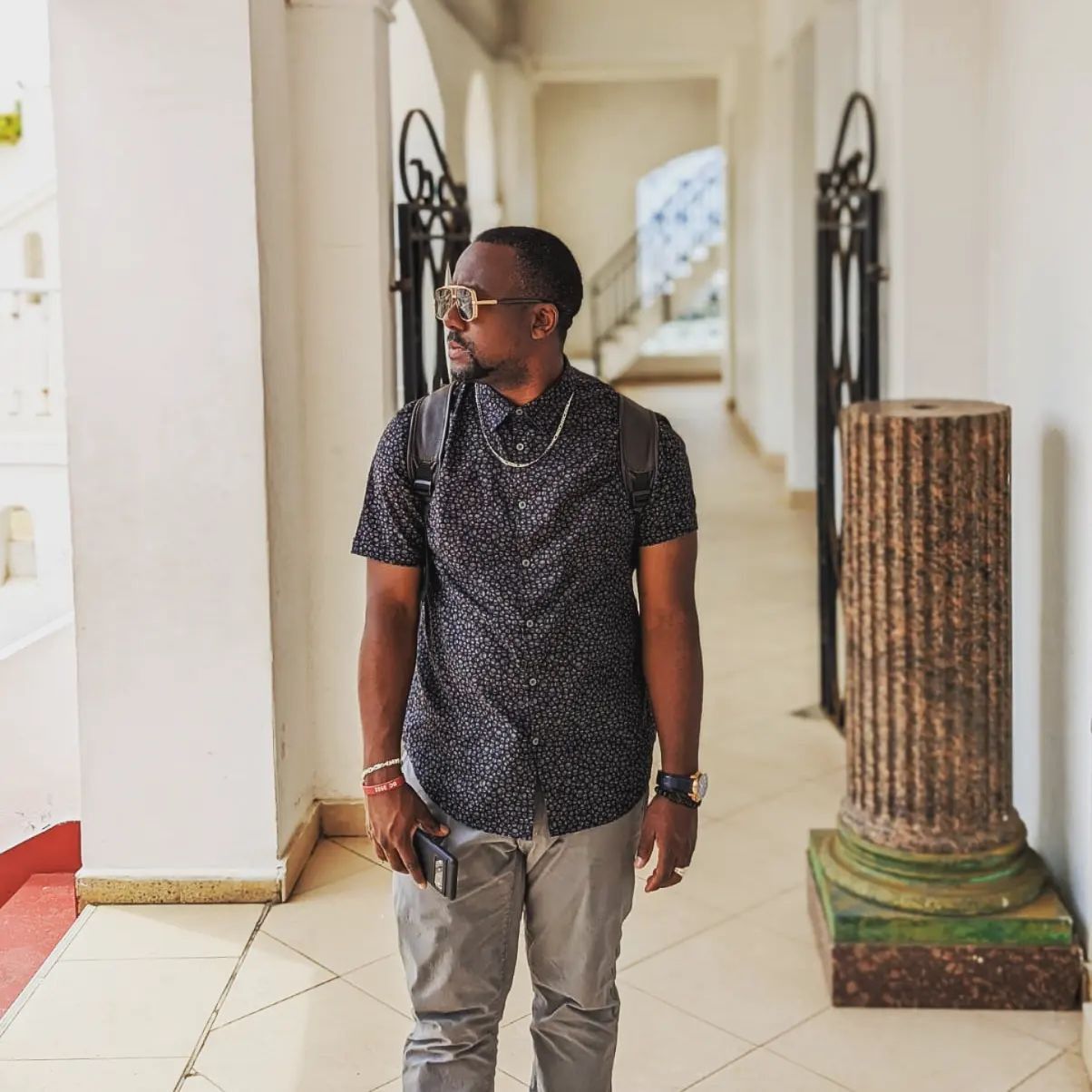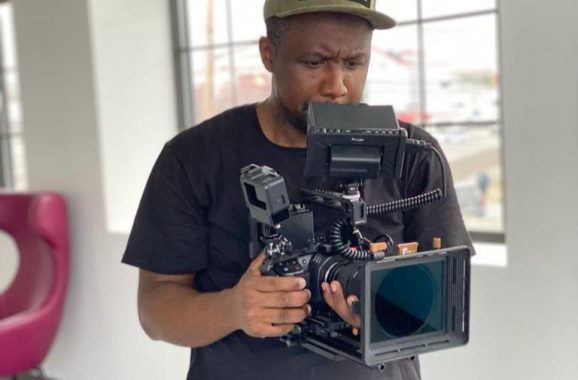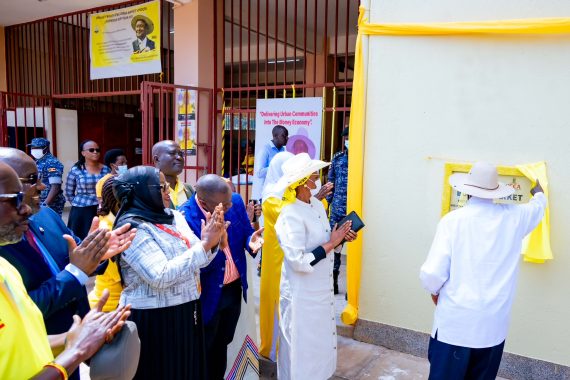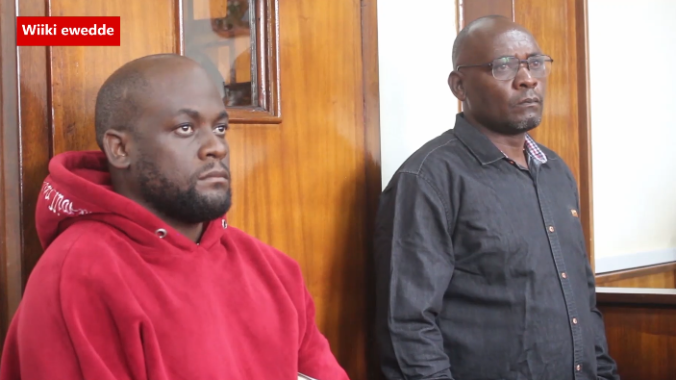A winner never quits and they always strive and aim higher and never think of giving up and that’s the heart of a winner. There’s also an adage that goes, ‘Stars never stop winning’ and that’s exactly what the new kid on the block of the movie industry Hakim Zziwa is, The dude never stops winning and neither does he slow down his efforts towards driving Uganda’s movie/ film industry on top.
Most filmmakers say it’s no easy thing to navigate through film or the movie industry in Uganda and triumph in it especially when you are short of funding but listen, Zziwa, puts it clear in this interview that it takes patience, consistency, and perseverance plus effort to achieving any goal one wants to accomplish in the industry.
Zziwa met up with our reporter and chatted up on issues regarding film industry and how far it has grown, is it worth a business venture or not yet a to-be-profitable job? Well, let’s get into the interview!
Talk to us about yourself, who is Hakim?
My name is Hakim Zziwa, a 40-year-old Ugandan born Muslim Muganda creative, specializing in video/ film Directing, Director of Photography and a Producer.
Great, what is your educational background?
Well, I went to Nakasero Nursery, Buganda Road Primary School, Kibuli Secondary School and Finally MUBS where I did International Business.
We understand that you won big at the recently concluded Ikon Awards, is this true?
Ohh! Yes, you know it came without a warning I must say, me and my team were able to win ‘big’ as you put it at the just concluded Ikon Film and Television Awards that happened in Uganda but attracted attention of thousands of film makers across Africa and the world. I never thought I would win and like I said, I never saw Building 62 getting any award but I thank God I walked home with the Best Short Film Award after beating hundreds of entries. Just know I am genius!
Talking of Building 62, what inspired you to do it?
The fact that I like movies based on true events or true stories, inspired me to produce a film like Building 62 which I think was a mix bag of true events in our country since 1962 [Independence] even though the story itself is fiction but the events in the film are not new to Ugandans. In short, Uganda’s past and current events since independence in 1962 inspired me to make Building 62. And By the way, I forgot to tell you, Building 62 won this years’ Best Short Film Award at the Ikon Film and TV Awards.
What obstacles did you have to put behind to come up with Building 62?
Yeah, I actually faced many challenges but you know, I think we can talk about it later; however, I want to highlight major 3 of them including;
1. Re-learning how to write film story structure during the pandemic and after.
- Trouble with film shooting locations for example misunderstandings with some filming location owners, issues with public filming location neighbors running businesses who felt they needed to be paid for having their locations in the background of our filming, struggles to get permits from police to shoot from certain locations and
- Unforeseen additional expenses since it was my 1st time to work with a fully-fledged film crew with 80% of people knowing what they were doing.
And By the Way, what is Building 62 about?
Building 62 is an action thriller proof of concept short film set in the suburbs of Kampala, Uganda’s capital, during the mid-2000s. The film was inspired by my desire to tell realistic stories that reflect the challenges in our society. While it is a work of fiction, the events depicted in the film have been happening since the 1970s.
Building 62 aims to entertain while shedding light on the realities of our society and is currently undergoing development into a TV series.
Wow! Tell us more, how is Building 62 project doing so far, what’s the fan’s take and reception of the movie?
The film currently has not been watched by many Ugandans apart from fellow players in the film industry most of whom have watched it which I think is because of the fact that it is in English and also having produced such a film for the 1st time, I knew less about film marketing than I know now but it is all part of growth and reason as to why I made the film to break into the Ugandan film industry and know more on how the whole thing works from production , to distribution and marketing and I confess that I did now do what they call a film media tour which was very necessary and didn’t even do any screening.
However the few Ugandans that have watched it were thrilled and enjoyed it and shared it with pride as part of Uganda’s film industry achievements when it was nominated amongst the finalists in the best short film category in Uganda Film Festival 2023, Africa International Film Festival 2023 and Ikon Awards Film and Television 2024.And like I said, we won big at Ikon Awards!
Is movie/film production your first job and if yes, at what age did you venture into movie/film making?
Film production is not my 1st job but rather a financial investment that I hope to benefit from in a long run just like any other investment, it could likely work out or not.
My Primary Job is still producing videos, marketing content for businesses and also visual content for higher institutions of learning.
It is from these earnings that I am able to invest in film production with a goal of making Uganda proud on a global scale and also financially benefiting in the long run.
Awesome, share with us your 1st movie/ film project experience.
I have only been able to produce short films in my entire film career so far due to the budget constraints since I have financed them myself and making films can really be expensive.
My initial 1st short film was produced in 2016 after graduating with a 9 months intensive digital filmmaking certificate in the united states which I was able to secure with a partial scholarship, the experience was of course not the best since it was my 1st time to do it but interestingly, people liked the film and I produced it with longtime friends of mine who had no experience whatsoever about filmmaking, so I had to share a few gems with them to make it work.
What is it we hear about Hak Focus Entertainment, who owns it and how big is it?
Hak Focus Entertainment was founded by me and came to life 8 years ago but was mostly focusing on dance content given the fact that I have a huge dance background as a creative which was also my huge foundation for film as well.
Hak Focus Entertainment was a platform that I was using to show case other dancer’s videos and what Uganda had achieved in dance on global scale and it is at the same time that I was managing a dance company called Tabu Flo of which I was the founding member and also part of running Batalo East Dance Organization as a member.
I decided to use the same platform Hak Focus Entertainment to pivot to film production officially after the pandemic.
Are you working on some other projects, rather, do you have other projects apart from Building 62?
Besides Building 62 being one of the 1st sacrificial lambs to go public and being my official introduction to the film industry, I do intend to release a 2nd short film / sacrificial lamb to go public before the end of 2024 with a goal of emphasizing my entry to the industry as a player. I am also working on my 1st full length standard feature film scheduled for 2025 which I hope to premiere in Ugandan cinemas for people to watch.
I am also working on developing Building 62 into a limited series with the target of a bigger audience, hopefully making it to streaming platforms like Netflix, showmax or amazon prime. If it all goes well with film funding which I intend to secure as it will be expensive to produce an 8 episode series.
Having ventured into the film/movie industry, how do you see the industry, does it render any relevant assistance, say, to an ordinary film player?
I think the industry could do better by sharing what we know mostly amongst each other, if you are good at something, it does not harm to share the knowledge as opposed to keeping everything to yourself.
We can benefit from each other by sharing gems amongst each other because with that we can grow as a team. There is an element of individualism as some people would prefer to progress individually which makes sense to a certain degree but I still think sharing information with other industry players helps the industry grow. In short an ordinary player will benefit from the industry if more players open up to sharing gems and also collaborate amongst each other if possible.
We have actually exhausted quite a lot about work, this and that, let’s talk about your love life, is Hakim married?
I am currently not married but a father of a 15 year old son. And let’s stick to that, bro.
I hear you, so, where do you see your efforts take you, say in the next 5 years?
One of Africa’s best film directors is where I see myself in 5years, at least that is the goal, Africa is still a virgin when it comes to producing legendary films, I want to be one of those people because even the Americans started shifting efforts towards Africa when it comes to film, I anticipate an afrobeats type of storm to hit the African film industry.
The time to start investing in serious African cinema is now and by serious cinema I mean playing by the book of filmmaking, diversifying roles on film projects as opposed to being one man band on everything.
I have been networking to get to know more people that work in the film industry especially in Uganda so that I widen my options of people to collaborate and work with in the next 5 years and beyond.
The short films that I spend on are meant to help me widen my network of people to work with when shit hits the fan, the short films are also a costly marketing strategy that I hope to benefit from in the long run in many different ways.
In your opinion, do you think we have arrived as Uganda film industry, Are we even in the right direction or are still much lagging behind? Would you please share with us possible solutions to those challenges?
As a new player in the Uganda film industry I feel like where we are at is not where we were 10 years ago, there is some improvement of course, thanks to MultiChoice Uganda / M-net that has been able to invest some money into the industry that has seen a rise of new stars on Ugandan screens.

The emergence of Pearl Magic Channel and few other MultiChoice funded channels, has led to a huge growth in the industry for example people have been able to specialize in various film project roles and gotten better at them from the film crew stand point and also emergence of fresh new actors and directors on the scene as well.
90% of the film crew that I worked with on my recent films have been continuously working on MultiChoice film projects which made it easier for me to pull it off, in the earlier days it was hard to come up with a crew to shoot a film, right now more people have joined and learned on the job and from YouTube.
UCC’s Uganda Film Festival has also played a role in promoting film production on a national level, other recent contributors to the growth of film in Uganda are Ikon Awards film and television and Cinema UG.
In conclusion I think given what we have already, people in the film industry would need to invest in educating themselves about the art of filmmaking especially from the story telling perspective and there is no other useful resource than YouTube, we need to understand the different languages of film within the art itself.
We have all the tools necessary to make better films but more effort is needed in understanding or learning how film story structures work, Uganda has so many stories but how we tell them matters a lot and all this knowledge is on Youtube if you search correctly and of course save some ka money for Data.
I feel bad when big Hollywood studios come to Uganda and tell our stories when we have all the tools, all we have to do is invest in data and get the right information from YouTube because it is all there.
We need to learn how to tell stories from the film/cinematic standpoint as opposed to the 1st person narrative standpoint, I myself am still a student of the same.
And also, I think Uganda film industry needs to improve on music scores or rather music used in films, right now it is still a bit of a challenge because the few players in the industry that understand that space charge way too high but I am hopeful that with time it will get more affordable with more people that understand composing sound for film.
I believe music and sound in the film plays a big role in narrative film storytelling and that is an area where we lag behind as an industry.
There’s been this negative energy towards Ugandan movies from the Ugandans, as a movie/film maker what are you doing to ensure Ugandan stories, told by Ugandans are fully consumed by Ugandans locally?
As a Ugandan filmmaker I am trying to do things a bit different by investing in sound for film with my short films because I think music and sound for film contributes a lot to an audience’s engagement and keep them interested in watching a film and many people in the industry ignore that part. So I am trying to be a living inspiration for other Ugandan filmmakers so they can also improve on their craft if there is anything they can learn from my projects and vice versa.
I am using what I have learned from YouTube to shoot my films slightly differently to make Ugandans not lose hope in our films with hope of overshadowing that negative energy, it will of course take some time but I am hopeful.
I am also making sure that the crew members I work with on each film project learn something new from me, I share as much knowledge as I can with the people that know me or have worked with me from cast to crew so the knowledge does not just stay with me but can benefit other people or generations to come.
I believe with time it will get better and better.
Movie makers play a vital role in relaying some pertinent messages to the world, with the motive of shaping communities, while highlighting be it culture, food and people among others, what agenda are you pushing forward to the Ugandans and beyond?
I am pushing for a true events narrative in our societies with a goal of sparking discussions on how to make things right, some people would likely call my films being a bit controversial depending on the perspective one views them.
Great! Who do you look up to in the movie/film industry, both locally and internationally?
In the Ugandan film industry I look up to people like Loukman Ali, Nabwiso Mathew and Nathan Magoola who have worked hard to produce outstanding work on Ugandan screens.
Internationally I look up to people like Antoine Faqua [Director], Roger Deakens [Cinematographer] and Bradford Young [Cinematographer], some of whom I see as great cinematographers and directors.
Lastly, what message do you have for an ordinary Ugandan out there who wants to pursue filmmaking as a career, would you advise them to take on it or try something else to earn a living in a country like Uganda?
I would say an ordinary Ugandan who would like to pursue filmmaking as a career should start off small by not making filmmaking as a primary source of income, have other sources of income as they grow and learn. Network more, do some free jobs to build a resume or biography and learn on those jobs, consistency is key and also being wise and strategic on who they choose to work with in the industry.
And lastly, invest in data to learn more about filmmaking on YouTube which will help in identifying where their strengths are and what they can do best within filmmaking because film production is very wide and we can only specialize in certain areas and then collaborate to produce great work.
And By the Way, before I forget, please follow me on my socials; FaceBook, Instagram and X
Sapiosexual & Ambivert













